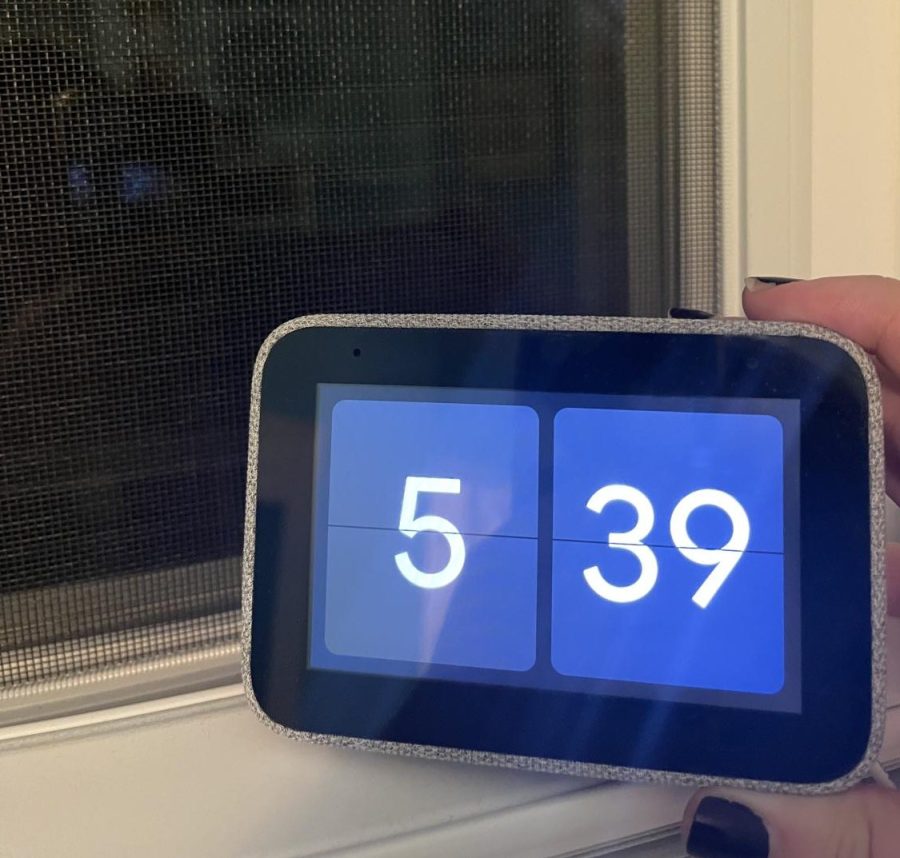Opinion: Daylight savings time is an unnecessary relic
Without daylight savings time, the sky becomes completely dark early in the evening.
November 16, 2022
As the sun sets below the horizon at 5:30 p.m. each night, I feel an overwhelming sense of grogginess knowing that the night has only begun. While many believe that we should change the current law and keep a consistent daylight savings time year round, we need to first ask the question: what was the point of daylight savings in the first place?
The first mention of the concept was by Benjamin Franklin, who noticed that he was wasting daylight hours in bed while he was in France. Daylight savings was put into effect during the industrial revolution for that same purpose: to “save” the daylight hours.
Before the widespread use of electricity to light up homes, people’s routines relied on the sun: they would wake up with the sun and go to sleep once it set. This had a detrimental effect on the economy during the Industrial Revolution due to the wasted man hours during the winter, according to an op-ed in the New York Times.
Once World War I started, British and American governments made daylight savings official in order to make workers more productive in the war effort. Ever since then, we have changed our clocks twice a year.
The concept of daylight savings time has been ingrained in our routines for 100 years, but with the advent of electricity, it might not be needed. So why do we still use it?
People who support the continuation of the biannual daylight savings cycle say it has potential benefits to the economy, as people tend to stay awake later and consume products for longer periods. They claim it promotes active lifestyles, just as people said when it was first implemented.
I think that keeping daylight savings time year round will have little to no negative effects on society. If it is made permanent, then people will adjust their daily schedules to the differing times that the sun rises and sets, just like they do twice each year currently. They will continue to consume products, do their work and fuel the economy.
Although there is some debate as to whether or not daylight savings is worthwhile, no change will be made until Congress passes any legislation.
The Sunshine Protection Act, a bill that would effectively keep daylight savings time permanent, passed in the Senate last March. However, the bill will need to be reintroduced because of the new Congress after the midterm elections.
Seasonal depression also plays a role in the changing of the clocks. Because it gets darker earlier every night, our bodies absorb less light, which has been proven to cause an 11% increase in depressive episodes during the fall and winter months, according to the National Library of Medicine.
For me, I would appreciate it if the sun set just a bit later, knowing that I wake up so early in the morning to get ready for school. Without daylight savings time, the sun sets very early, which effectively ends the day much sooner than I need it to. Having an extra hour of light would help me feel more productive after I get home from school, which in turn would allow me to go to sleep earlier.
Although it seems like daylight savings time is beneficial to American society, it is really just another outdated relic of the past that must be removed in order to adapt to a rapidly changing world.









